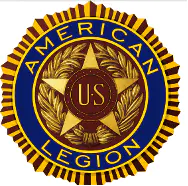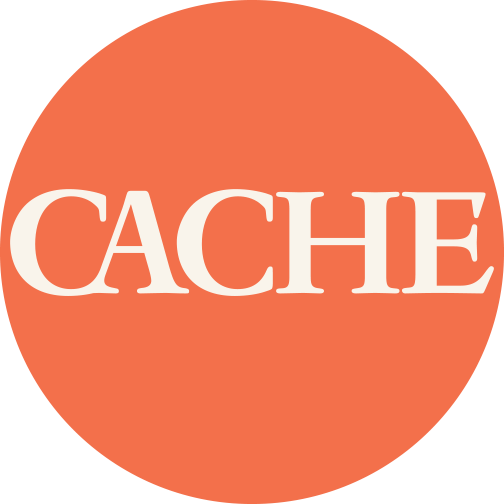By Dwight Miller

Exeter’s American Legion Post 94 was chartered in September 1919, the 94th chapter established in California. This group of World War I veterans carried forward a tradition begun with veterans from America’s earliest wars. Such as the aging veterans of the Civil War. Members of the Grand Army of the Republic (GAR) were familiar figures in community parades every July 4th. Confederate veterans had their own organization, the United Confederate Veterans (UCV). Even the brief Spanish-American War of 1898–99 gave rise to the Veterans of Foreign Wars (VFW).
But the World War I veterans were different. Unlike previous wars, World War I did not end with a decisive victory and surrender, but with an agreement to cease fighting—the Armistice. At that moment, about two million American troops were stationed in France, with another two million preparing to be deployed from the United States or serving in support roles across the country. When the Armistice was signed at the 11th hour of the 11th day of the 11th month in 1918, morale soon became low, and the U.S. military leadership in France faced the challenge of keeping millions of idle young men occupied while waiting for ships to bring them home.
Meanwhile, in early 1919, Vladimir Lenin and his communist revolutionaries had taken control of Russia and were embroiled in a civil war. Lenin, a committed Marxist, envisioned a worldwide communist movement and the violent overthrow of capitalist nations. Across Europe, communist-inspired riots shook cities such as Berlin, Munich, Budapest, Helsinki, Oslo, and Prague. In response, Lt. Colonel Theodore Roosevelt, Jr. proposed a way to keep American troops grounded in positive, familiar pursuits: “We’ve got to do something American to keep these guys busy and not caught up in the news of these riots.” The solution was distinctly American—football and baseball. Athletic competitions sprang up between units, and by March 1919, while still in Paris, the idea of a permanent organization for veterans had taken shape. Out of this came the American Legion, with encouragement for troops to form posts in their hometowns once they returned. Nearly all did. Whether one served overseas or stateside, every veteran was welcomed—about four million in total.
From its inception, the Legion was explicitly nonpartisan, refusing to take sides in politics while vigorously advocating for veterans’ benefits. At the same time, it promoted “Americanism,” defined as devotion, loyalty, and allegiance to the United States, respect for its flag, traditions, institutions, culture, and symbols, and defense against the rising tide of socialism, anarchism, and communism.
Exeter’s First Legionnaires
- Ray Buckman – local farmer, mountain packer, and member of the pioneer Buckman family.
- Sid Schelling – son of pioneer John Schelling; founder of Exeter Mercantile; the family have been civic leaders since 1916.
- Bert Van Osdoll – farmer who, with his wife Virginia, donated the South Kaweah trailer park to fund the Exeter Chamber of Commerce.
- Awbrey Mackey – son of a constable; later became regional superintendent for Standard Oil Co.
- W. P. Ballard – Exeter’s first mayor.
- Carnell Balaam – farmer from a large pioneer family.
- L. L. Dungan – lifelong agricultural leader; son of Dr. J. F. Dungan, Exeter’s first doctor.
- Frank Walter – track star at the first California high school state meet in 1915; medalist in four throwing events; later returned to family farming.
- J. W. C. Pogue – pioneer ag family member; instrumental in starting Memorial Hospital in 1948.
- U. G. Knight – former publisher of the Exeter Sun; farmer by 1919.
- Henry Mehrten – rancher from a pioneer family.
- Harry Mehrten – his brother; also a rancher from the same family.
- R. E. Wood – agricultural inspector.
- Glenn Jackson – barber.
- James Cooney – bank clerk.
- E. G. Hogan – bank manager.
- S. A. McNay – real estate businessman and community leader.
Building Community Spirit
Almost immediately, the Legion turned its energy to community improvement. One of its first major projects was organizing, with the Visalia post, the grandest Armistice Day celebration in the San Joaquin Valley on November 11, 1920. Months of planning produced a spectacular event: a parade, rodeo, athletic contests, fireworks, a barbecue, a community dance, and even airplane flyovers. From this celebration emerged the Exeter All-Stars, a semi-pro football team sponsored by the Legion. After two undefeated seasons and two state championships, they were known as the “Invincibles,” now immortalized in a mural on the Holaday Gym at Exeter High School.

By 1926, spurred on by Exeter Sun editor Watt Clawson, the Legion spearheaded the construction of the Gateway Arch on Highway 65 at Exeter’s south entrance—a symbol of civic pride built with all volunteer labor that stood for five years. A replica of that arch adorns East Pine Street today. Clawson went on to challenge, unsuccessfully, other groups to erect a matching arch at the west entrance on Visalia Road.
Legacy of Service
SSince then, Exeter’s Post 94 has remained active in countless ways: awarding youth for citizenship and academic excellence, sponsoring sports programs, and sending high school students to Boys State and Girls State leadership conferences. Each Memorial Day, the post organizes the placement of more than 1,700 flags at veterans’ graves in Exeter Cemetery, followed by a solemn service honoring all who served, with special remembrance for those who gave their lives in combat.
When World War II veterans returned in the late 1940s, they joined the Legion and pushed forward the construction of the Veterans Memorial Building, completed in 1953. For more than seventy years, that facility has been a cornerstone of community life.

Today, Jim Mainwaring is the Post Commander of Exeter Post 94 and has about twenty members working with him. On the morning of November 11, 2025, the Legion, along with the Memorial building board, will lead the dedication of a new Memorial Plaza at the building. This will launch Exeter’s participation in the nationwide celebration of the founding- America250. Patriotic themes will be featured each month culminating in the annual July 4th fireworks.
